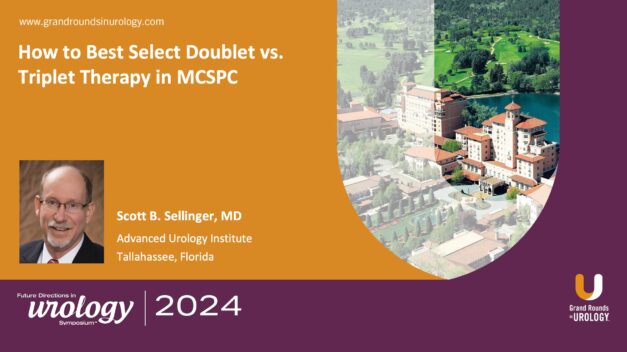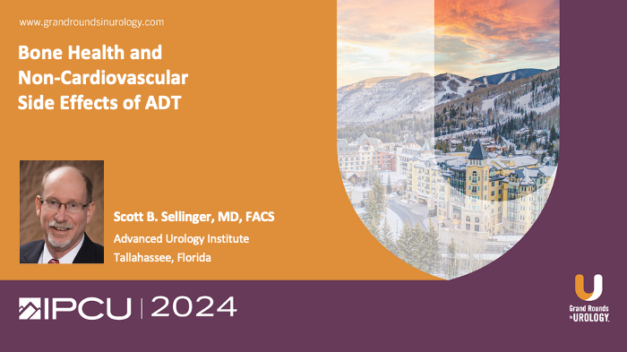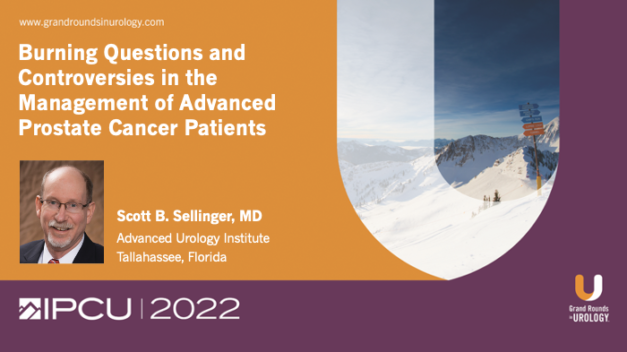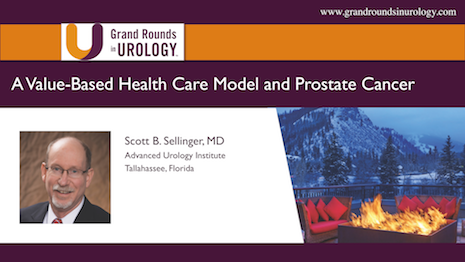How to Best Select Doublet vs. Triplet Therapy in MCSPC
Scott B. Sellinger, MD, FACS, addresses key considerations in deciding between doublet and triplet therapies for metastatic castration-sensitive prostate cancer.
In this 12-minute presentation, Dr. Sellinger highlights the superiority of androgen deprivation therapy (ADT) combined with androgen pathway inhibitors. He discusses evidence from pivotal trials, including TITAN, ARCHES, PEACE-1, and ARASENS, demonstrating that doublet and triplet therapies offer superior survival benefits compared to ADT alone.
Sellinger emphasizes that selecting between doublet and triplet therapy is both an art and a science, balancing clinical guidelines with patient-specific factors such as age, comorbidities, and access to treatment. While higher volume and symptomatic patients might benefit from more intensive triplet therapy, the importance of patient preference, PSA response, and cost considerations is underscored. He suggests that establishing clearer guidelines on doublet versus triplet therapy could help practitioners make more confident decisions for their patients in this nuanced field.
Read More




